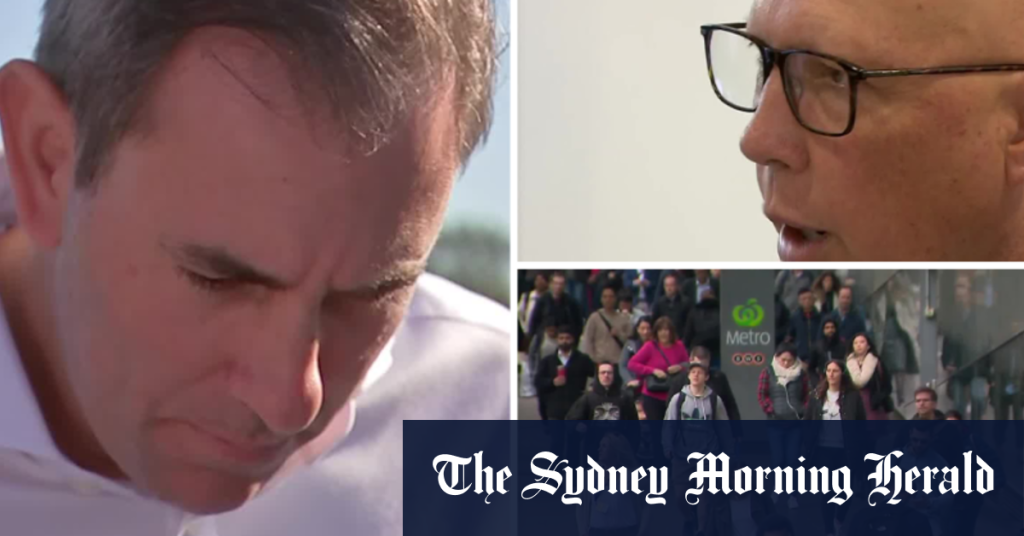Following the release of the federal budget, the government and opposition continue to engage in heated debates and bickering over various policies and proposals. One particular area of contention is Immigration Minister Peter Dutton’s plan to reduce migration numbers. The opposition has launched a fresh attack on this plan, criticizing it as being harmful to the economy and international relations. This ongoing feud between the two parties highlights the division and discord within Australian politics post-budget.
The budget announcement has sparked a wave of criticism and disagreement from the opposition, who are quick to condemn the government’s proposed cuts to migration as damaging and short-sighted. The opposition argues that reducing migration numbers will have negative consequences for the economy, as skilled migrants contribute significantly to growth and productivity. Furthermore, they suggest that cutting migration could harm Australia’s international reputation and relationships, as it may be perceived as turning inward and closing off to the global community.
In response to the opposition’s criticism, Immigration Minister Peter Dutton defends the government’s plan to cut migration, citing a need to prioritize Australian citizens for job opportunities and address infrastructure pressures. Dutton refutes claims that the policy will have detrimental effects on the economy, emphasizing the importance of managing population growth and ensuring sustainable development. Despite the opposition’s attacks, the government remains steadfast in its commitment to its migration reduction strategy, sparking further tensions and disagreements between the two parties.
The post-budget bickering between the government and opposition underscores the deep-rooted ideological differences and policy disagreements that exist within Australian politics. The budget announcement has not only failed to bridge the gap between the two parties but has instead exacerbated existing divisions and fueled ongoing debates and disputes. As the government defends its budget decisions and the opposition challenges them, the political landscape becomes increasingly polarized, leading to a lack of consensus and cooperation on key issues such as migration policy.
The standoff over migration and other budget measures reflects a broader struggle for power and influence within the Australian political arena. Both the government and opposition are vying for public support and credibility, utilizing budget announcements and policy proposals as tools to assert their respective agendas and priorities. The post-budget bickering serves as a platform for each party to showcase its vision for the country and rally support from voters, highlighting the competitive and combative nature of Australian politics.
As the post-budget bickering between the government and opposition continues, it remains to be seen how these conflicts will ultimately be resolved and what implications they will have for the future of Australian governance. With tensions running high and disagreements persisting, both parties must find common ground and collaborate in order to address the pressing challenges facing the nation. The outcome of this ongoing political feud will not only shape the implementation of budget measures but will also impact the broader policy decisions and direction of the Australian government in the years to come.


